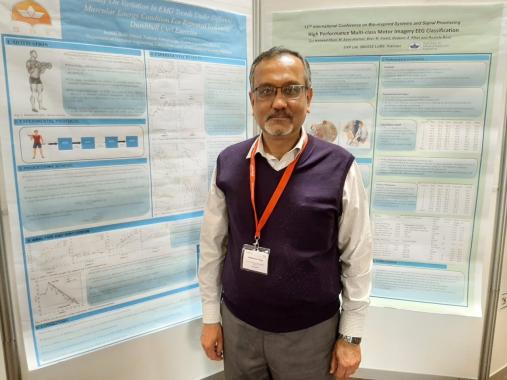
Dr. Nadeem Ahmad Khan, Associate Professor, at the Department of Electrical Engineering at the Syed Babar Ali School of Science and Engineering, LUMS, presented three of his research papers at the 13th International Conference on Bio-Inspired Systems and Signal Processing, BIOSIGNALS 2020, organised by Institute for Systems and Technologies of Information, Control and Communication (INSTICC). INSTICC is a scientific, non-profit, association whose main goals are to serve the international scientific community by promoting, developing and disseminating knowledge in the areas of information systems and technologies, control and communications.
Dr. Khan also chaired a session on the theme ‘Bio-inspired Systems and Signal Processing’. The conference took place in Valletta, Malta from February 24-26, 2020. The purpose of the conference was to bring together researchers and practitioners interested in studying and using models and techniques inspired from or applied to biological systems. The attendees at this conference come from multiple areas of expertise, including biology, medicine, engineering as well as computer and data science.
Dr. Khan orally presented his paper on the topic of exploring the merit of collaboration in classification and compression of epilepsy EEG signal. This paper was co-authored with Rushda Basir, a Research Assistant on Dr. Khan’s Faculty Initiative Fund (FIF) project. The other two papers were presented as posters which were on the topics of classification of motor-imagery in EEG signal and on local fatigue progression in bicep muscles during isokinetic exercise. These two papers were co-authored with two LUMS students, Gul Hameed, an Electrical Engineering PhD student and Muhammad Usama Rizwan, an Electrical Engineering Senior. The two papers were also co-authored by Dr. Mian M. Awais, a Professor at the Computer Science Department, and another graduate student.
The paper involving detection and measurement of fatigue was based on the work conducted during an FIF project. In this project A-level students were also voluntarily involved in the conducting of experiments. The topic help raise interest among the students towards Bio-signal processing and the Electrical Engineering field in general.








